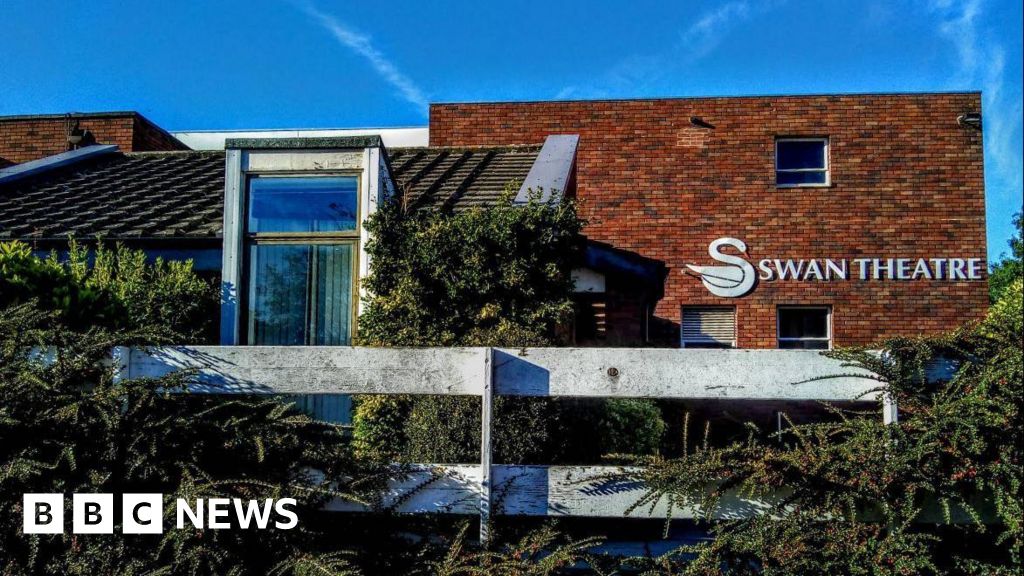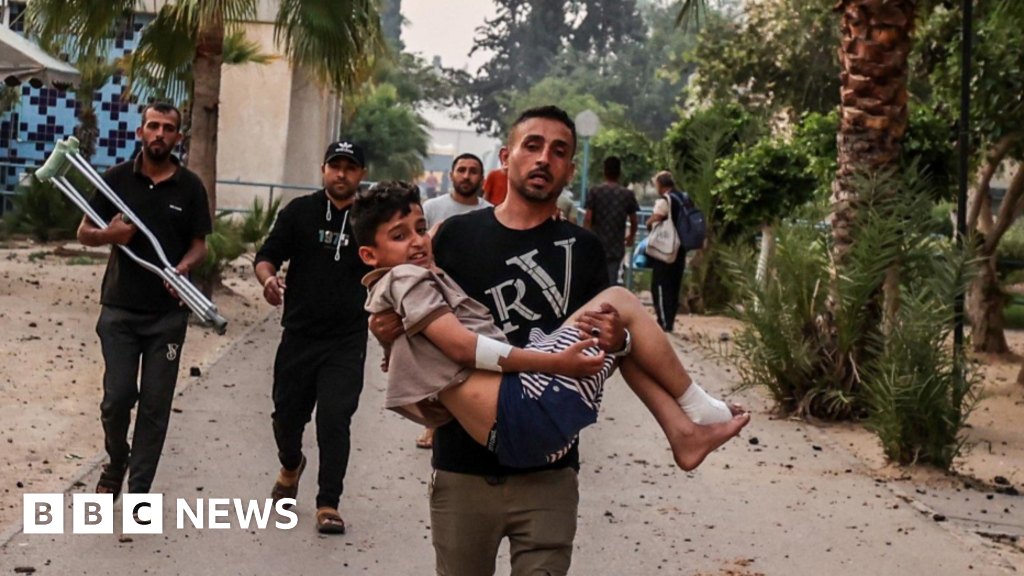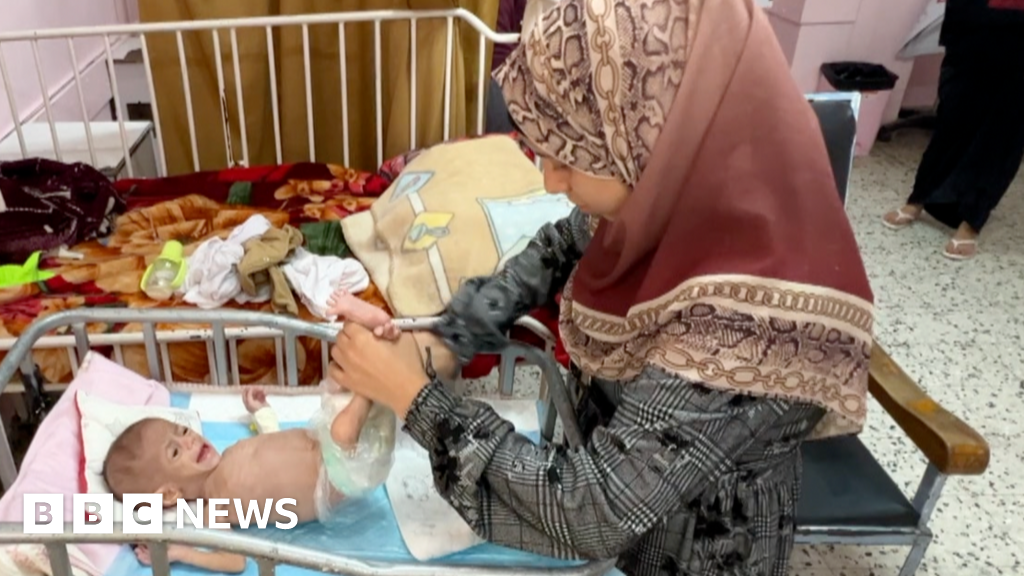- Canada
Investing in America: The best US cities for international business
时间:2010-12-5 17:23:32 作者:Africa 来源:Trends 查看: 评论:0内容摘要:He had a "full circle" moment watching poet John Cooper Clarke take to the stage, after first seeing him while working at his local festival aged 16.He had a "full circle" moment watching poet John Cooper Clarke take to the stage, after first seeing him while working at his local festival aged 16.
A spokesman from its Washington embassy said China had recently "repeatedly raised concerns" with the US over its "abuse of export control measures in the semiconductor sector". The US already has restrictions in place on technology exports to China, and on Wednesday paused more sales to China of chip technologies - crucial to semiconductors - and also paused exports of chemicals and machinery.Pengyu Liu said both sides had maintained communication since the talks in Geneva on 11 May, which had ended on a positive note.

However on Thursday, US Treasury Secretary Scott Bessent had said trade talks with China had become "a bit stalled".Bessent told Fox News on Thursday: "I think that given the magnitude of the talks, given the complexity, that this is going to require [leaders of both the countries] to weigh in with each other."Trump's global tariff regime was dealt a blow on Wednesday following a ruling that he had exceeded his authority. His plans have been temporarily reinstated after the White House appealed the decision.

His administration this week also moved to "aggressively" revoke the visas of Chinese students studying in the US, of which there are an estimated 280,000.In Geneva, Washington and Beijing had agreed to reduce tariffs imposed on each other's imports in a deal where both nations cancelled some tariffs altogether and suspended others for 90 days.

Bessent said talks on a further deal had lost momentum, but stressed they were continuing.
"I believe that we will be having more talks with [China] in the next few weeks and I believe we may at some point have a call between the president and [Chinese President Xi Jinping]," Bessent said on Thursday.The Maoist movement, rooted in past struggles against caste oppression, still carries social legitimacy in parts of these states. Civil society activists have also joined the push for a truce.
"We, along with other civil rights groups, demanded a two-step process - an immediate ceasefire followed by peace talks," said Ranjit Sur, general secretary of the Kolkata-based group Association for Protection of Democratic Rights.Maoist-affected states remain resilient strongholds in part because they are rich in minerals - making them sites of intense resource battles. Mr Venugopal believes this is key to the CPI (Maoist's) enduring presence.
Chhattisgarh, for instance, is India's sole producer of tin concentrates and moulding sand, and a leading source of coal, dolomite, bauxite and high-grade iron ore, according to theIt accounts for 36% of the country's tin, 20% iron ore, 18% coal, 11% dolomite and 4% of diamond and marble reserves. Yet, despite strong interest, mining companies - both global and national - have long struggled to access these resources.
- 最近更新
- 2025-07-07 08:08:14Why are the number of flights reduced at Newark airport in the US?
- 2025-07-07 08:08:14Sprawling Heat Dome Could Smash June Records In Northeast, Midwest, Including 100s In…
- 2025-07-07 08:08:14Who are the Gold Mafia? Godmen, conmen and a president’s niece
- 2025-07-07 08:08:14‘Scientific asylum’: How Europe is luring US researchers amid Trump fears
- 2025-07-07 08:08:14Leaders risk getting into shouting match with Donald Trump over increased defence spending
- 2025-07-07 08:08:14opinion content. Lex. Defence tech spies an opportunity in global crisis
- 2025-07-07 08:08:14Amid Iran market risks, watch gas as well as oil
- 2025-07-07 08:08:14Report: Iran state media say attack has begun on U.S. bases in Qatar and Iraq
- 热门排行
- 2025-07-07 08:08:145-Ingredient Fresh Tomato Pasta
- 2025-07-07 08:08:14Gulf state hosts largest US military base in the Middle East
- 2025-07-07 08:08:14State of the Automotive Finance Market: Q4 2024 [PDF]
- 2025-07-07 08:08:14NBA Finals: Tyrese Haliburton speaks out after Achilles injury in Game 7, apologizes …
- 2025-07-07 08:08:142-Tier Multi-Purpose Bathroom Under Sink Organizers (2-pack)$25$40Save $15with coupon
- 2025-07-07 08:08:14The Pioneer WomanLooking for a healthier snack? Fuel up with these high-protein ideas
- 2025-07-07 08:08:14wasted the limited space in my suitcase
- 2025-07-07 08:08:14UK moves to ban pro-Palestinian protest group after air base break-in
- 友情链接
- Israel weighs next phase of Iran campaign after US strikes Trump faces backlash from Maga base US bombs nuclear sites in Iran Sign up for Swamp Notes, our newsletter on the intersection of money and power in US politics Premier had refused to increase military expenditure to 5% of GDP to placate Donald Trump Travel outside your political tribe? Many are saying no thanks US moves B-2 stealth bombers into Pacific as Trump weighs entering war Elevate your dining experience, whether you’re watching Wimbledon, Wicked, or the sun go down Anneleen Van Bossuyt suggests measures echoing Donald Trump’s negotiation tactics Keir Starmer’s balancing act on Iran risks political pain at home Appreciation would suit Beijing’s global ambitions for the currency Building the product shelf of the future IDF signals it will continue offensive while assessing impact of US raid on nuclear sites Could strikes on Iran cause a nuclear disaster? Building the product shelf of the future The Israel-Hamas war in maps and charts Will the courts rain on Trump’s parade? Sign up for Swamp Notes, our newsletter on the intersection of money and power in US politics US bombs nuclear sites in Iran US bombs nuclear sites in Iran Who has Trump’s ear on Iran? Self-driving technology on which Elon Musk has staked future of his company debuts in Texas Advent agrees £4.4bn takeover of London-listed Spectris He should persuade the leadership in Tehran that this is still possible Appreciation would suit Beijing’s global ambitions for the currency Inflation and interest rates tracker: see how your country compares Self-driving technology on which Elon Musk has staked future of his company debuts in Texas In maps: Iran’s three nuclear sites targeted by US bombers Leaders risk getting into a shouting match with Donald Trump over increased defence spending Military briefing: will Iran start a new ‘tanker war’?
